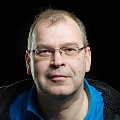As of 30.01.2020
Name of the project: Building new efficient algorithms and proving compleity of quantitative tasks
Strategy for Scientific and Technological Development Priority Level: а
Research directions: Algorithms and complexity theory
Project objective: Solving fundamental problems of modern mathematics and informatics: study of complexity of computatios
|
Hosting organization
|
Field of studies
|
City
|
Invited researcher
|
Time span of the project
|
|---|---|---|---|---|
|
Laboratory «Hybrid modeling and optimization methods in complex systems»
Siberian federal University - (SibFU) |
Computer and information sciences |
Krasnoyarsk |
Stanimirović Predrag Stefan
Serbia |
2022-2024 |
|
Laboratory «Research of ultra-low-latency network technologies with ultra-high density based on the extensive use of artificial intelligence for 6G networks»
The Bonch-Bruevich Saint Petersburg State University of Telecommunications |
Computer and information sciences |
St. Petersburg |
Abd El-Latif Ahmed Abdelrahim
Egypt |
2022-2024 |
|
Laboratory for Non-linear and Microwave Photonics
Ulyanovsk State University - (USU) |
Computer and information sciences |
Ulyanovsk |
Taylor James Roy
United Kingdom, Ireland |
2021-2023 |




